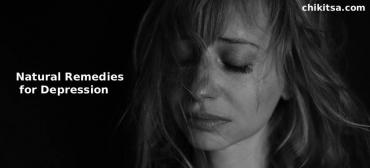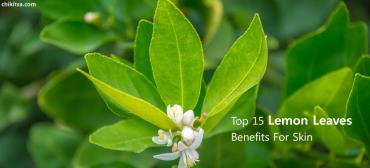6 Secrets You Didn't Know About Coconut Oil For Dandruff And Itchy Scalp

How many of us have often thought “My sole and only soul mate is dandruff! Everyone and everything can leave me except for my dandruff.†Well! Dandruff surely is a major issue for most of us and the number of people included in this US is rapidly increasing. Researches have found this issue of dandruff not only causing itchy flaky skin apart from giving us a bad hair day, but it has also been related to our low self-esteem. Is it not solvable? Yes, it is. It can be managed and solved in the most natural way such as using Coconut oil for dandruff and itchy scalp. Let us learn more about the same.
What Is Dandruff?
Dandruff or pityriasis capitis is an issue which most individuals or their near and dear ones face commonly these days. According to research, around fifty percent of the entire human population has suffered from the issue of dandruff at some point of their lives. Usually, people visualize the white and dry flakes often noticed on one’s shoulders or back as dandruff. We often relate such flakes to certain problems with the hair quality whereas the problem actually lies at the base of such hair, or the skin on the scalp of our head. It is obviously believed that such dry flakes are nothing but dead skin cells of the scalp.
Causes Of Dandruff And Itchy Scalp
Though the exact cause of dandruff is yet to be ascertained, various theories attempting to find a cause for such a situation believe that:
- Skin cell of the scalp dies fast due to the presence of a common fungus called Malassezia on the scalp of one’s head which leads to the issue of dandruff. Such a fungus is believed to live on the scalp of an individual without causing much trouble other than the issue of dandruff.
- Dandruff has a relation with dryness in the air, therefore the problem aggravates during winters.
- Oily skin and skin irritation causes a situation known as seborrheic dermatitis which is known to be a more severe form of dandruff
- Oily skin which is not cleaned and shampooed frequently can cause flakes and itching
- Use of certain personal care products can also lead to the situation known as contact dermatitis which makes the scalp itchy and red
- Men have a higher tendency of developing dandruff than women.
- Dandruff can also be caused due to certain diseases such as HIV or Parkinson’s
Not only during the age of puberty, but dandruff can also affect anyone at any age. Some of the common symptoms of dandruff are the presence of white and dry flakes apart from having an itchy and scaly scalp.
Natural Ways To Treat Dandruff
While regular washing of hair and scalp with an anti-dandruff shampoo, available commonly over the counter, is the suggested treatment of dandruff, there are certain other natural ways of treating the issue. Some of the natural ways and methods to treat dandruff, itchy, and dry scalp include:
- Using a good shampoo which suits the skin and hair type of the individual. It is advisable to get medical advice on the type and frequency of such a shampoo.
- Practicing good hygiene of the scalp and hair by shampooing regularly using a mild shampoo, or as prescribed by the doctor.
- Avoid scratching the scalp even when the scalp is highly irritated and itchy. Scratching usually leads to a vicious cycle of scratching.
- Avoid using too many personal care products, especially those which can cause irritation or make the situation worse.
- Avoid taking stress since the fungi Malassezia thrive well when the body’s immune system is compromised.
- Maintaining a healthy diet and lifestyle such as practicing yoga and walking on a regular basis helps maintain the body while reducing levels of stress.
- Though it is believed that oily hair can cause dandruff, it is important to moisturize the scalp appropriately to avoid a dry scalp which tends to get flaky and itchy apart from resulting in dry and breaking hair strands. Coconut oil proves to be the appropriate answer for this tricky question. This is because:
- Coconut oil is the best moisturizer to act as the best natural ingredient to fight dryness.
- Coconut oil is easily available at every Indian home.
- Coconut oil has antimicrobial properties because of the presence of various minerals and the presence of lauric acid, capric acids, and caprylic acids thus helping in protecting the scalp.
- Coconut oil is helpful in treating fungal infections and eczemas at the same time.
- Coconut oil is helpful in reducing dryness and inflammation.
- Coconut oil contains essential nutrients such as various vitamins, minerals, and fatty acids which tend to help in improving the quality of hair and skin.
- Coconut oil ensures rapid healing because of the presence of various minerals and other essential agents.
- Coconut oil helps in several ways such as by reducing the presence of brittle hair, loss of hair and reducing or eliminating split ends.
Methods Of Using Coconut Oil For Curing Dandruff And Itchy Scalp
According to various researches, coconut oil has been found to be an all-inclusive solution for various skin related issues and thus have been at times referred to as an alternative skin care product. Some of the prescribed ways or methods of using coconut oil for curing dandruff and itchy scalp include:
1. Using Coconut Oil As An Alternative To Shampoo And Conditioner
This is possible when the individual applies coconut oil directly on the scalp and then comb the oil throughout the remaining length of one’s hair for better results after massaging the scalp with your fingers gently for three to five minutes. The oil should be allowed to penetrate well within the hair and the skin (of scalp) and thus leave it on for some time. Thereafter the oil should be rinsed off well. In case some individual wants a more lathering product, he/she can readily mix warm water with two tablespoons of good quality coconut oil (try virgin coconut oil, if possible) prior to applying it on the scalp.
2. Coconut Oil For Scalp Psoriasis
Using virgin coconut oil has immense benefits for scalp psoriasis, a chronic skin ailment which is caused due to an overactive immune system resulting in flaking, inflammation, and thick, white, silvery, or red patches of skin. Individuals suffering from psoriasis of the scalp should spread the oil on his/her scalp with a special focus on the scaly areas. Such scaly areas should also be gently massaged for a few minutes. Then the individual needs to leave the areas and allow the oil to penetrate well for at least 30 – 60 minutes, or overnight if possible. If possible, the individual should wrap the scalp in a towel or a shower cap for better results. Then the individual needs to rinse the hair with either a normal or anti-dandruff shampoo.
3. Mixing Coconut Oil With Camphor
There are various suggestions of using coconut oil for treating dandruff such as using coconut oil with camphor. For this, around 1 teaspoon of camphor should be thoroughly mixed with half a cup of virgin coconut oil and stored in an airtight container (since camphor can cause rapid breakdown of coconut oil). The same mixture should be applied before bedtime on the scalp and massaged well and allow the mixture to penetrate for at least 30-40 minutes before going to sleep. The process should be repeated daily for at least 1-2 weeks until dandruff disappears.
4. Mixing Coconut Oil With Lemon
Another solution for treating dandruff is mixing coconut oil and lemon juice. Around two tablespoons of lemon juice should be mixed with 2 tablespoons of virgin organic coconut oil and heated at low temperature. The mixture should then be applied on to the scalp and rubbed directly for around four to five minutes. The oil should be allowed to penetrate well within the hair and the scalp for around 20-30 minutes and then the hair should be rinsed using a mild shampoo and warm water. The process should be repeated once or twice every week till dandruff disappears.
5. Mixing Coconut Oil With Fenugreek Seeds (Methi Seeds)
Mixing one tablespoon of crushed fenugreek seeds in four tablespoons of warm virgin organic coconut oil and allow the mixture to cool down. The mixture should then be generously applied on to the scalp and allowed to penetrate for at least two to three hours. Thereafter rinse the hair with a mild shampoo and then gently dry the hair. The process should be repeated twice or thrice every week till the dandruff is eliminated completely.
6. Mixing Coconut Oil with Honey, Olive Oil, And Yogurt
Taking two tablespoons each of virgin organic coconut oil, honey, olive oil, and yogurt, the mixture needs to be blended into a consistent paste. The paste should then be evenly applied on the scalp while massaging gently with the fingertips. This would help the scalp to exfoliate and stimulate the flow of blood. The paste should be allowed to rest for around 40-60 minutes and then washed with a mild shampoo until the paste is removed completely. Once the hair is dry after such a wash, massage a small amount of coconut oil onto the scalp for better results. Repeat the process at least once a week until dandruff disappears.
These are some suggestive mixtures to treat dandruff. Though coconut oil is considered to be an effective product in treating dandruff and itchy skin, certain people might be sensitive to the use of coconut oil. Therefore, prior to using the same for treating dandruff, it is advisable to test the levels of sensitivity for the individuals (sometimes an entire day should be given for the results of such sensitivity tests since after effects can be quite delayed). The immense benefits of coconut oil for dandruff and itchy scalp have made it an essential component of various shampoos, conditioners, and other beauty products available over the counter.









